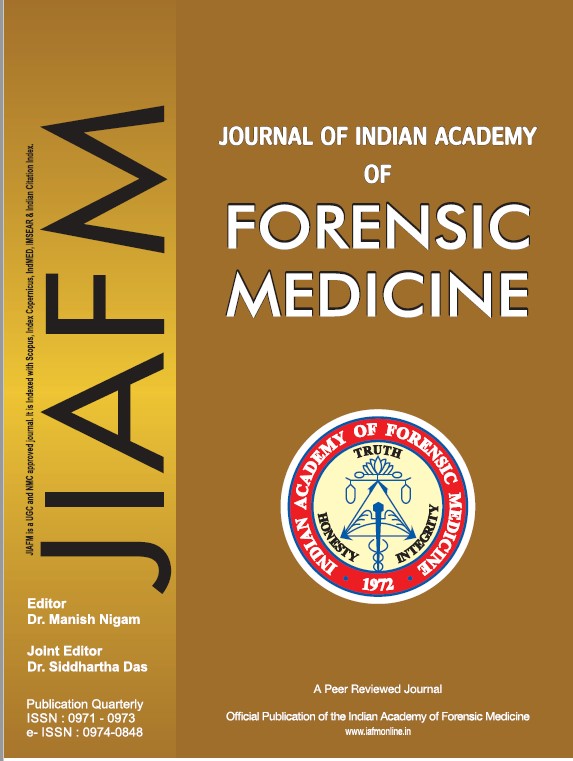Correlation of Diagonal Ear-lobe Crease with Coronary Artery Disease among Indians: An autopsy study
Keywords:
Autopsy, Frank's sign, Diagonal Ear Lobe Crease, Coronary Artery DiseaseAbstract
Atherosclerotic coronary artery disease (CAD) incidence, prevalence, morbidity and mortality are rapidly increasing across the world and particularly in India. Diagonal ear lobe crease (DELC) or Frank's sign had been known as a cutaneous marker of atherosclerotic coronary artery disease since many decades. However, only few Indian clinicians are aware of the relevance. The aim of the present study was to correlate diagonal earlobe crease with presence and extent of atherosclerotic coronary artery disease among Indian population. This was a prospective observational study for duration of 19 months, carried out in the Department of Forensic Medicine and Toxicology, Shri Vasantrao Naik Government Medical College, Yavatmal, Maharashtra state (India). The association between DELC and the extent of coronary artery atherosclerosis was analyzed on autopsied subjects. Amongst 767 cases, 79.1% were male, 93 with DELC and 674 without DELC. The prevalence of DELC was 83.3% in those with CAD and 4.1% without CAD. The numbers of coronary artery involved were more with DELC (2.10 ± 0.68) than without DELC (1.32 ± 0.55). Considering DELC as one of the diagnostic markers for CAD, validity of this diagnostic marker i.e. sensitivity and specificity were 0.83 & 0.96 respectively. Positive predictive value and negative predictive value for DELC was 0.70 & 0.98 respectively. From the above study we conclude that the diagonal ear lobe creases is a specific and sensitive marker for atherosclerotic coronary artery disease.


